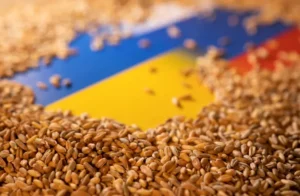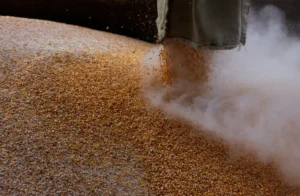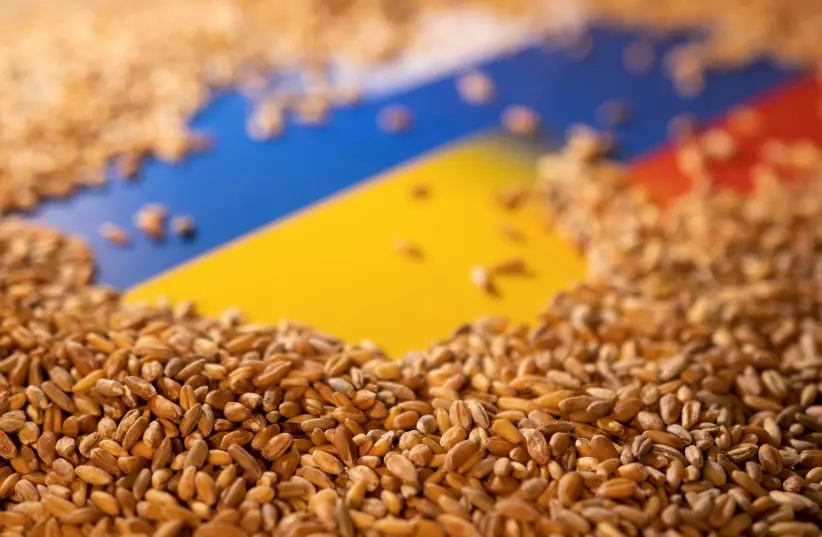Kremlin spokesperson Dmitry Peskov said the three countries would hold talks on the so-called Astana Process, which seeks agreements between them on the war in Syria.

Turkish President Recep Tayyip Erdoğan aims to finalize details on a deal to free the grain stuck in Ukraine during a meeting with Russian President Vladimir Putin on Tuesday, analysts tell The Media Line.
For more stories from The Media Line go to themedialine.org
The two men are due in Tehran next week to meet with Iranian President Ebrahim Raisi, in what is billed as a meeting on Syria, where the three countries are heavily involved.
Kremlin spokesperson Dmitry Peskov said the three countries would hold talks on the so-called Astana Process, which seeks agreements between them on the war in Syria, and that Putin and Erdoğan would meet one-on-one as well.
Iran and Russia have backed Syrian President Bashar Assad while Turkey has supported rebel groups that oppose him.
Kerim Has, a Moscow-based political analyst focusing on Russia and Turkey, told The Media Line that he believes Erdoğan and Putin will discuss details of an agreement to get food cargo out of Ukraine.

“In my opinion, they will put the last point on the grain corridor on the Black Sea,” said Has.
He added that Ankara needs to coordinate with Russia because Turkey would likely help inspect the ships, due to fears from Moscow that they could be used to deliver arms.
“The economy is in tatters. The population is both angry and hungry.”
Francesco Siccardi, a senior program manager at Carnegie Europe
After a meeting with Ukrainian, Russian, and UN officials on Wednesday over the blocked food supplies, Turkey said a deal would be signed by all the parties during a meeting next week.
Turkey and Ukraine announced after the talks that a coordination center would be set up in Istanbul to help guide the ships that are stuck in the Black Sea.
The UN said more work was needed before a deal could be reached but that there had been significant progress.
Ukraine is a major supplier of grain and the foodstuffs stuck in the country have led to rising food prices worldwide.
Has argued that Russia was interested in reaching an agreement because many of the countries that rely on the grain, such as in Africa, have good relations with Russia.
Francesco Siccardi, a senior program manager at Carnegie Europe, agreed that a bilateral meeting with Russia on Black Sea shipments is one of Turkey’s top priorities.
“Turkey has an interest in doing a deal just because it would give them huge credibility internationally,” he said.
The trilateral meeting comes after, according to the United States, Russian officials visited Iran on Friday and last month to view drones that Moscow wants to use in its war in Ukraine. The White House stated that Iran was expected to provide hundreds of drones to Russia, including ones that could carry weapons.
Turkey’s military plans in Syria
Turkey’s planned military operation in Syria will also likely come up in Tehran.
Erdoğan has stated that his country would target Manbij and Tel Rifaat in northwestern Syria, areas where Russia and Iran have military presences, although Moscow has partly withdrawn since invading Ukraine while Iran has increased his presence there.
He did not provide a date for the attack.
Ankara has said it will carry out the operation against Kurdish fighters it says are allied with the Kurdistan Workers’ Party (PKK), a militant group that has led a decades-long insurgency in Turkey.
The PKK is considered a terrorist organization by Turkey, the US, and the European Union.
Erdoğan said the operation will also allow Turkey to complete the establishment of a so-called “safe zone” where Syrian refugees living in Turkey could go.
Influx of refugees with a parallel inflation crisis
Turkey hosts more Syrian refugees than any other country and tensions with the local population have been rising at the same time as the country is experiencing an economic crisis with massive inflation.
The two issues have put major pressure on Erdoğan and have hurt his approval rating with a year or less to go before the national elections.
“The economy is in tatters. The population is both angry and hungry,” said Siccardi.
He said a study he conducted last year showed that Erdoğan’s approval ratings improved after the country carried out military operations in Syria because it appeals to nationalist Turks who are a key voting base for his party.
“The calculation there is it’s going to increase his domestic standing and therefore improve his chances of being re-elected next year,” Siccardi said. “It also offers him the possibility of saying that he is looking at ways to fix the refugee situation.”

